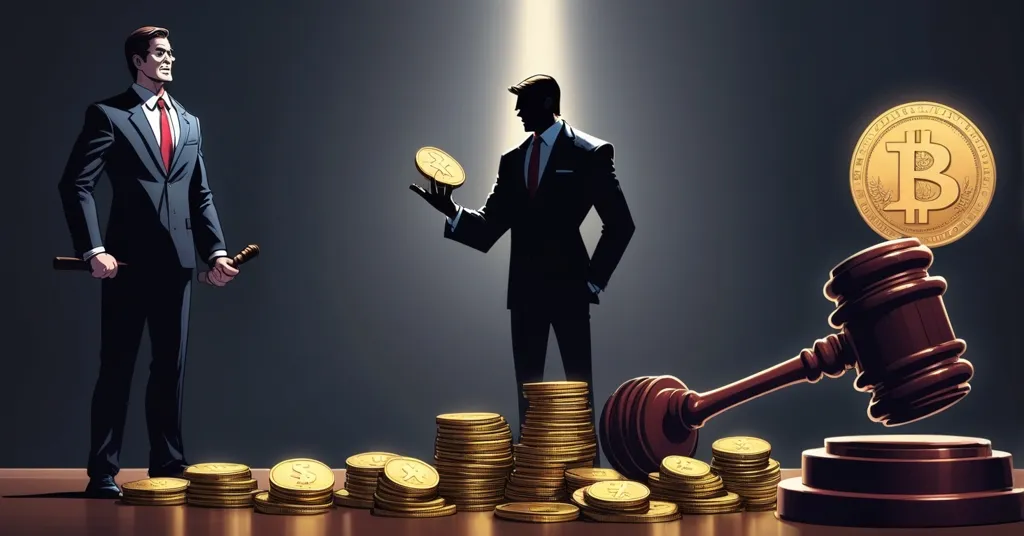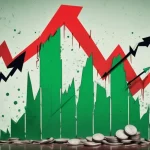SEC Commissioner Crenshaw Slams XRP Settlement, Warns of Regulatory Vacuum

XRP VS SEC: Commissioner Crenshaw Opposes The Settlement
The SEC’s recent settlement with Ripple Labs over XRP sales has ignited controversy, particularly with SEC Commissioner Caroline A. Crenshaw’s vocal dissent. Her opposition raises serious questions about the future of cryptocurrency regulation and the protection of investors.
- SEC Commissioner opposes XRP settlement
- Settlement undermines investor protections
- Potential regulatory vacuum feared
The saga began in December 2020 when the SEC filed a lawsuit against Ripple Labs, accusing them of selling XRP tokens without registering them as securities. For the uninitiated, the SEC, or U.S. Securities and Exchange Commission, is the regulatory body tasked with overseeing and enforcing securities laws. XRP, on the other hand, is a cryptocurrency developed by Ripple Labs. The lawsuit was a test case for how the SEC categorizes digital assets, and it has been closely watched by the crypto community.
In July 2023, a pivotal ruling came down. The court partially sided with the SEC, declaring that institutional sales of XRP were unregistered securities offerings. However, it also ruled that secondary sales on exchanges did not qualify as such. This nuanced decision set the stage for the recent settlement, which was announced on May 8, 2025.
The settlement requires Ripple to pay over $125 million in penalties. But, in a twist that has raised eyebrows, it also allows Ripple to reclaim $75 million in escrowed funds and vacates an injunction that previously restrained future XRP sales. To many in the crypto space, this looks like a win for Ripple, but it’s not without its critics.
Commissioner Crenshaw’s dissent is a stark rebuke of the settlement:
This is not a settlement I can support, it subverts the clear and honest application of the facts to the law… and does a tremendous disservice to the investing public.
She argues that the settlement undermines the judiciary’s role and could allow unregistered XRP sales to resume. This, she believes, creates a regulatory vacuum—a situation where there are no clear rules—increasing investor risk and leaving the market in a state of uncertainty.
Crenshaw’s dissent reflects a broader tension within the SEC. There’s a divide between those who advocate for strict regulation to protect investors and those who favor a lighter touch to foster innovation. The settlement raises significant questions about the SEC’s future approach to crypto enforcement and its impact on investor confidence.
The outcome of this case could set a precedent for how other cryptocurrencies are regulated. If the SEC is perceived as stepping back from enforcement, it might encourage other crypto projects to push boundaries, potentially leading to increased market volatility. This scenario could be a double-edged sword: while it might benefit those looking to disrupt the financial status quo, it could also create a Wild West environment that leaves investors vulnerable.
As the dust settles on this settlement, it’s worth considering the broader implications for the crypto industry and beyond. With recent leadership changes at the SEC, including the appointment of Mark Uyeda as Acting Chairman and the nomination of Paul Atkins, both known for their more balanced approach to crypto regulation, the agency’s stance might be shifting. The formation of the Crypto Task Force led by Commissioner Hester Peirce also signals a move towards developing a comprehensive regulatory framework for digital assets.
Yet, the SEC’s decision to settle with Ripple at a potentially reduced amount and the ongoing appeal process suggest that the final chapter of this story has yet to be written. The political landscape adds another layer of complexity, with recent discussions between crypto investors and senators hinting at pressures for regulatory changes.
As we navigate this evolving narrative, one thing remains clear: the path to regulatory clarity in the crypto world is fraught with challenges. While Ripple may celebrate this settlement, the broader implications for the industry and its investors are yet to be fully understood. The crypto community, ever the optimist, watches closely, hoping for a future where innovation can thrive without sacrificing investor protection.
Key Questions and Takeaways
- What is the main issue with the SEC’s settlement with Ripple Labs according to Commissioner Crenshaw?
Commissioner Crenshaw argues that the settlement undermines investor protections and weakens the SEC’s crypto enforcement efforts. - What are the key components of the settlement between the SEC and Ripple Labs?
Ripple is required to pay over $125 million in penalties, $75 million in escrowed funds will be returned to Ripple, and the injunction restricting future XRP sales is vacated. - How does the settlement potentially affect future XRP sales?
By vacating the injunction, the settlement may allow Ripple to sell unregistered XRP tokens again without consequences. - What broader implications does Crenshaw suggest the settlement has for the SEC’s approach to crypto enforcement?
Crenshaw warns that the settlement represents a broader shift away from crypto enforcement, potentially creating a regulatory vacuum and prioritizing deregulation over legal precedent. - What impact might the settlement have on investor confidence and market clarity?
The settlement raises questions about investor protections and market clarity, potentially eroding public confidence in the SEC’s integrity and mandate.



